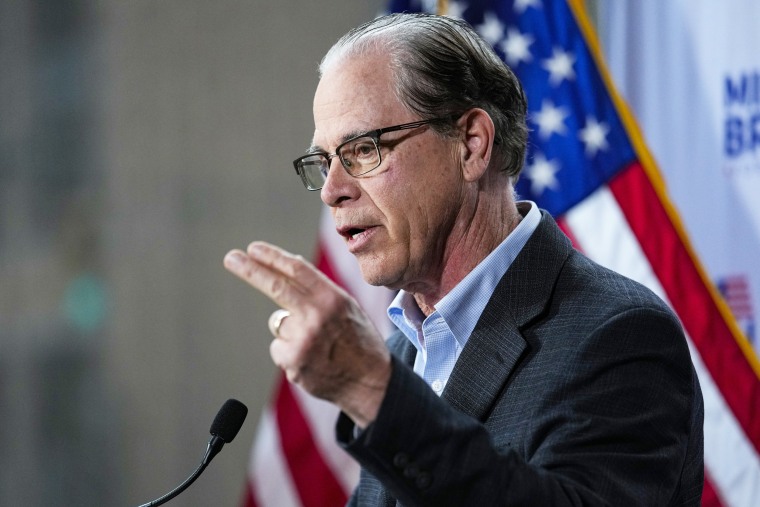A handful of members of Congress are either running or considering bids for offices back in their home states, and in some cases, they'll be able to use some of their federal campaign funds to get an early boost.
That's what Indiana Republican Sen. Mike Braun is doing in his bid for governor. Braun's campaign said in a press release this week this week he's raised $1.5 million so far, and added he's transferred $1.5 million from his Senate campaign account.
Even though that money was raised for Braun's Senate campaign, there's no prohibition in federal law against transferring that money to a state or local campaign, as long as the move doesn't violate that local law. Many states, including Indiana, do allow those transfers, allowing Braun to start his gubernatorial race with a leg up (that said, Braun loaned his 2018 campaign $11.6 million of his personal wealth, which he could also do to add to his gubernatorial campaign coffers).
But other federal officeholders looking to run for other offices don't have that luxury. While Louisiana Republican Sen. John Kennedy was floating a gubernatorial bid (he ultimately decided not to run), he wouldn't have been able to touch whatever was left in his Senate campaign account because Louisiana law prohibits those kind of transfers.
The issue could be relevant in other states this coming cycle, depending on whether any members of Congress decide to run for races for governor or any other other offices at the state or local level.
But while state law governs these kinds of discussions, there's a clear prohibition on federal candidates funding bids with money raised for state and local races. That means the governors who are seen as possible 2024 presidential hopefuls — like Florida Republican Gov. Ron DeSantis, former Arkansas Republican Gov. Asa Hutchinson, South Dakota Republican Gov. Kristi Noem, New Hampshire Republican Gov. Chris Sununu and Virginia Republican Gov. Glenn Youngkin — wouldn't be able to seed a potential presidential bid with money they previously raised.
One option in those cases is for the state campaigns to refund donors and ask them to send that money to a presidential bid instead, as long as the costs to solicit those donors are paid for by the presidential campaign.
Or state-level political accounts could send money to a super PAC or outside group that ultimately decides to play in the presidential race. But that move would possibly force the state campaign to file with the Federal Election Committee and be subject to federal disclosure rules.

